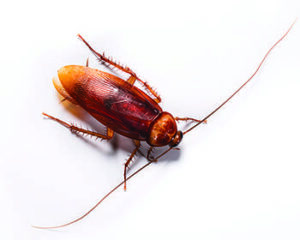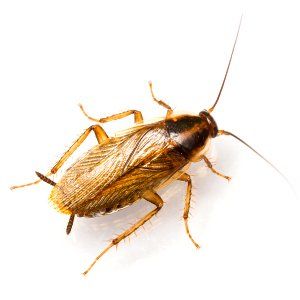Relied On Roach Control Near Me: Getting Rid Of Bugs forever
Relied On Roach Control Near Me: Getting Rid Of Bugs forever
Blog Article
Checking Out Numerous Insect Control Approaches to Achieve Long-Term Success in Managing and Avoiding Infestations in Residential Areas
Effective insect control in property areas requires a multifaceted approach that balances immediate results with long-term sustainability. By checking out a range of methodologiesâEUR" consisting of environmentally friendly services, chemical alternatives, and Integrated Bug Administration (IPM) âEUR" house owners can create strategies that not just address current problems yet also avoid future incidents. This expedition exposes the potential of innovative methods and emerging innovations that might redefine conventional parasite monitoring. What might these developments involve, and how can they change our understanding of bug control?
Comprehending Insect Control Techniques
Although insects have actually existed alongside humans for centuries, the techniques employed to regulate them have advanced substantially in time. Comprehending these approaches is critical for properly taking care of and avoiding infestations in suburbs. Parasite control techniques can be generally categorized into three main approaches: cultural, mechanical, and chemical.
Social techniques concentrate on modifying the setting to reduce insect tourist attraction and breeding. This includes proper sanitation, crop rotation, and environment adjustment, which can considerably decrease pest populations. Mechanical control involves physical barriers and traps to manage pests directly, such as displays, vacuum cleaners, and sticky traps. This approach is typically favored for its safe nature and instant outcomes.
Chemical control continues to be one of the most extensively used approaches, involving the application of pesticides to eliminate insects. Integrated Insect Management (IPM) combines these approaches to create a holistic approach, advertising long-term insect prevention and very little harm to helpful microorganisms.
Eco-Friendly Bug Control Solutions
How can home owners successfully manage insect troubles while decreasing their environmental effect? Eco-friendly parasite control remedies use a lasting option to typical techniques, prioritizing the health and wellness of both homeowners and the surrounding community. These options frequently use all-natural active ingredients and strategies that interrupt pest behavior without presenting harmful chemicals into the setting.
One effective technique is using helpful bugs, such as ladybugs and lacewings, which prey on usual pests like aphids and mites. Additionally, diatomaceous earth, an all-natural powder made from fossilized algae, can be sprayed in locations where parasites prevail, functioning as a desiccant that hurts insects while staying secure for humans and animals.
Moreover, applying safety nets is important. roach control near me. Property owners can ensure proper sanitation by securing entry points, preserving clean home, and taking care of waste properly. Planting pest-repellent herbs, such as mint and basil, can also hinder unwanted site visitors
Eventually, green pest control solutions encourage property owners to address problems sensibly, promoting a more secure living environment while advertising eco-friendly equilibrium. By embracing these techniques, people can add to a healthier earth while properly taking care of pest-related problems.
Chemical Bug Control Options
While eco-friendly remedies are significantly preferred, there are situations where chemical bug control choices might be needed for efficient monitoring of serious infestations. Chemical controls, including pesticides, fungicides, and herbicides, are often you could check here made use of to rapidly decrease bug populations and alleviate damages to homes and yards.
These items can be categorized into two main classifications: synthetic chemicals and natural pesticides. Artificial chemicals, such as pyrethroids and neonicotinoids, are engineered to target particular bugs, offering fast knockdown effects. On the other hand, natural chemicals, acquired from plant or mineral sources, might use a much more environmentally friendly alternative while still delivering effective outcomes.
Before using chemical parasite control, it is crucial to conduct a complete evaluation of the invasion and determine the particular bug included. This makes certain that the selected chemical is both effective and proper. Additionally, house owners should comply with security guidelines, consisting of proper application techniques and individual protective equipment, to minimize health dangers and environmental effect.
Integrated Parasite Management Methods

Biological control includes the usage of all-natural killers or parasites to take care of bug populations. Physical controls, like catches or barriers, can stop insects from getting in homes or harmful plants.
Tracking and Click This Link analysis are important elements of IPM, allowing for timely interventions based on pest population thresholds. By focusing on preventive measures and making use of a mix of techniques, IPM not just addresses current problems yet likewise fosters long-term pest monitoring services that safeguard both human health and wellness and the environment. This extensive strategy is crucial for sustainable bug control in property areas.
Arising Technologies in Parasite Control
The introduction of emerging modern technologies in insect control is revolutionizing the way we take care of pest populaces, providing innovative remedies that enhance effectiveness and efficiency. Advancements in precision farming, as an example, use data analytics and sensor innovations to check pest task and ecological problems, enabling for targeted interventions that minimize pesticide usage.
In addition, drones outfitted with imaging innovation are being used to survey huge areas for invasions, giving real-time data that help in prompt decision-making. Moreover, biotechnology is playing a crucial role, with the growth of genetically modified organisms (GMOs) designed to minimize bug populations while protecting advantageous varieties.

Finally, clever catches and checking devices furnished with IoT capabilities enable property owners and insect control experts to obtain immediate signals about bug activity, promoting timely activity. Collectively, these emerging modern technologies not only next improve insect management results but also add to ecological sustainability by decreasing dependence on traditional chemical therapies.

Verdict
Finally, effective bug control necessitates a diverse method that integrates social, mechanical, and chemical methods. Stressing green options and Integrated Pest Management can lead to sustainable methods that not only reduce invasions but also improve the eco-friendly balance within houses. By welcoming innovative modern technologies and taking on preventive measures, house owners can promote much healthier atmospheres while reducing reliance on harmful chemicals. The assimilation of these methods is essential for achieving lasting success in insect monitoring.
Report this page